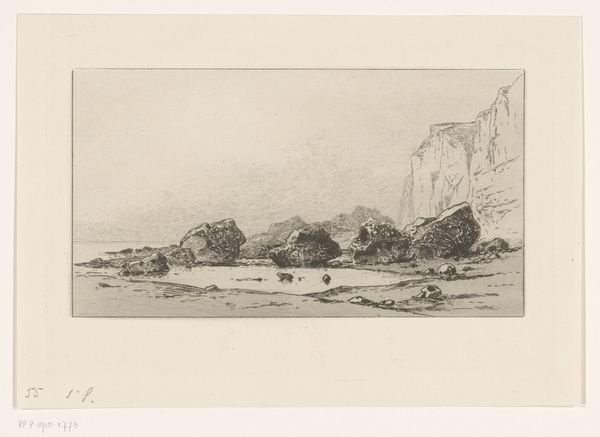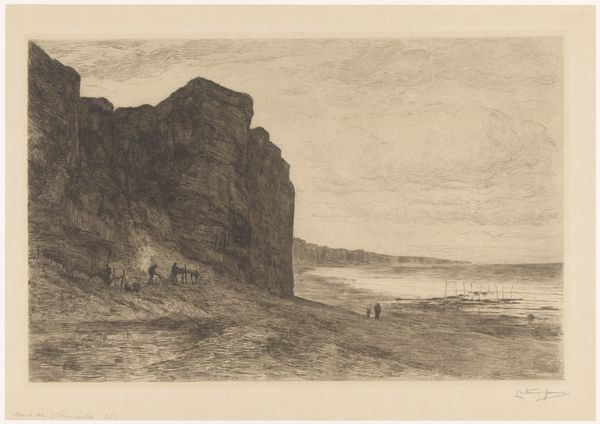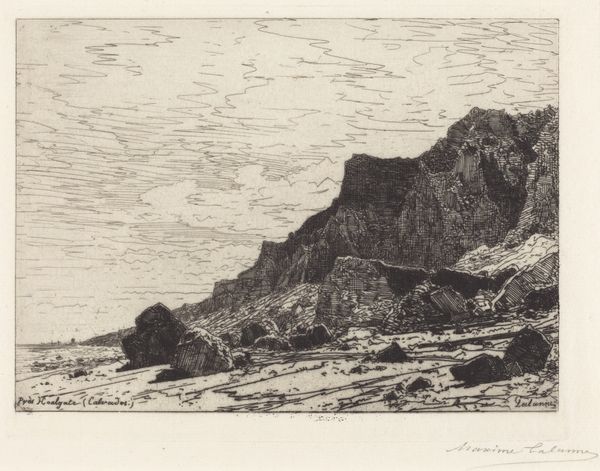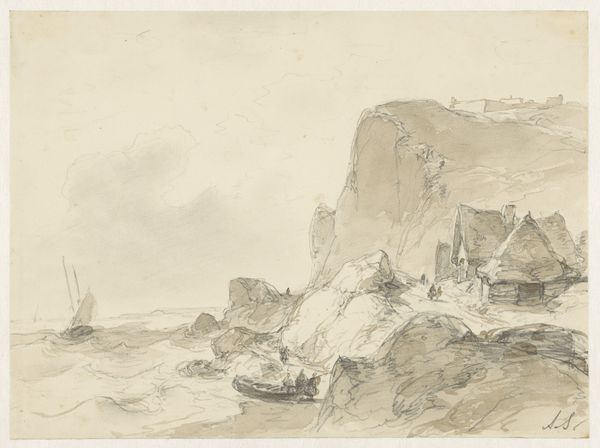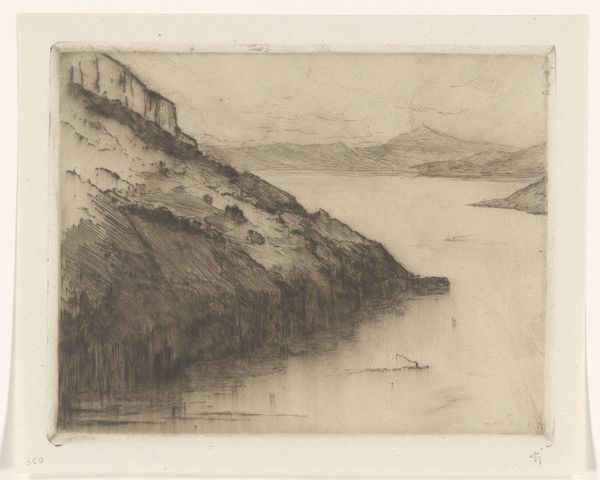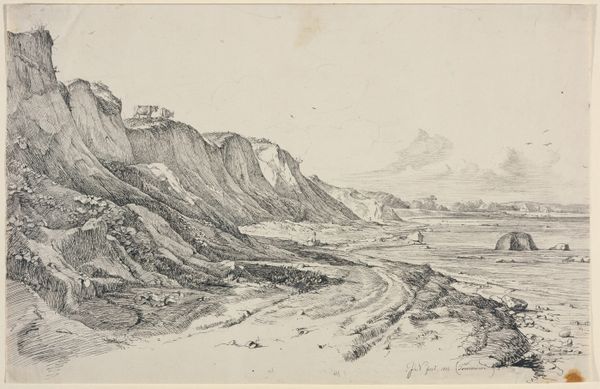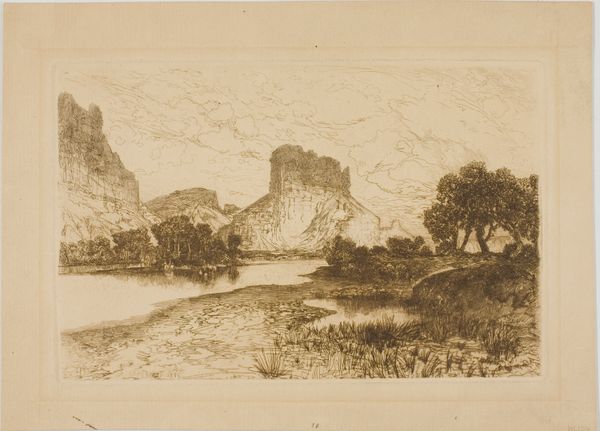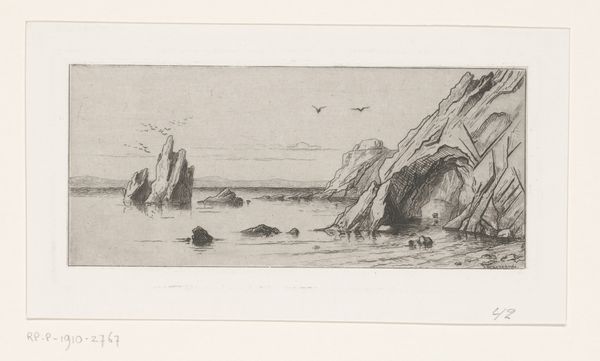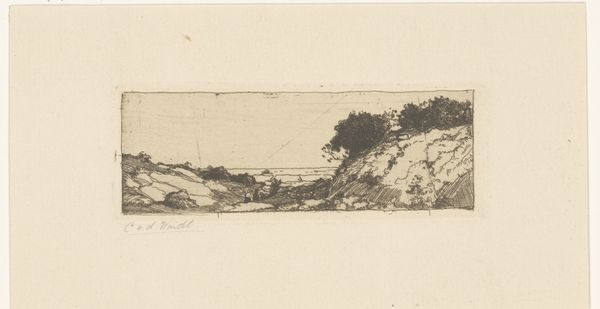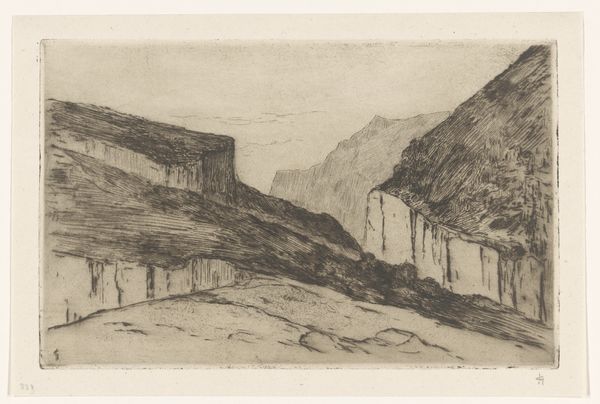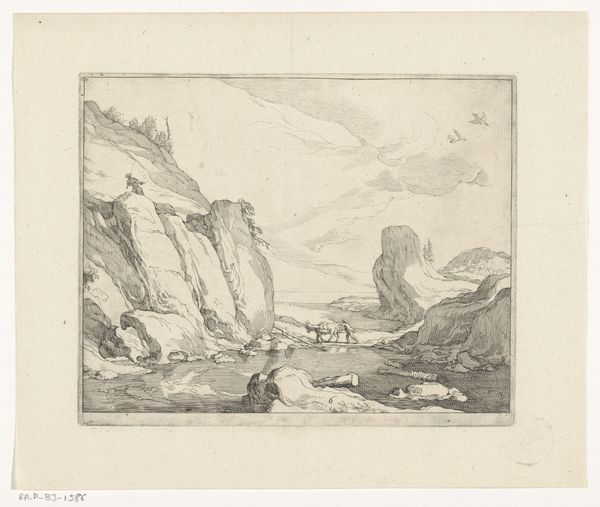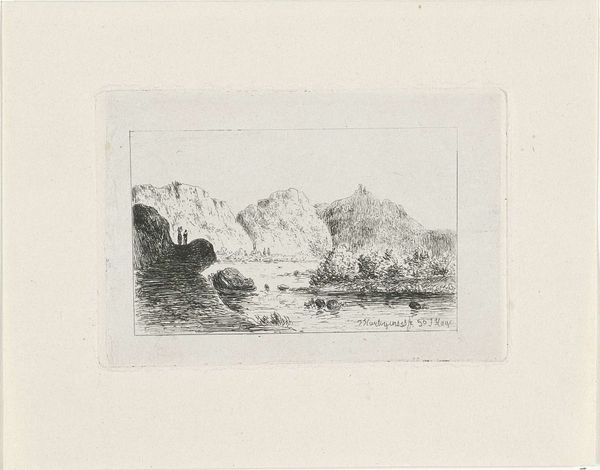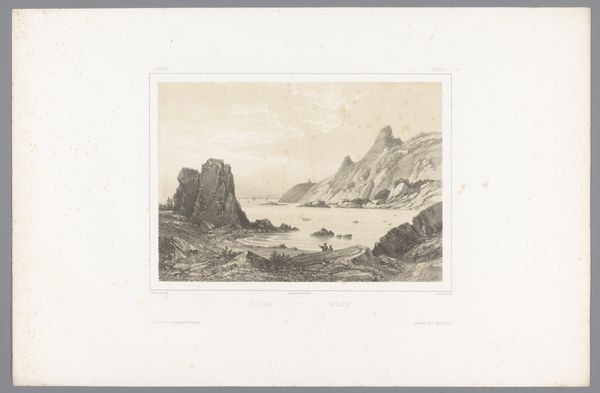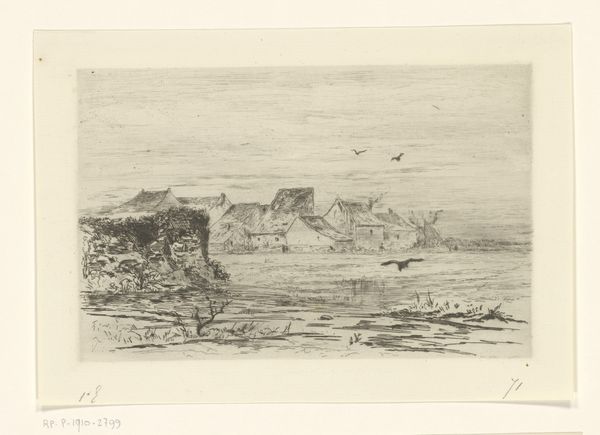
#
pencil drawn
#
light pencil work
#
pencil sketch
#
old engraving style
#
etching
#
personal sketchbook
#
ink drawing experimentation
#
pen-ink sketch
#
sketchbook drawing
#
pencil work
Dimensions: height 151 mm, width 235 mm
Copyright: Rijks Museum: Open Domain
Carel Nicolaas Storm van 's-Gravesande created "Rotsblokken bij Veules," using etching – a printmaking technique dating back centuries. The appeal of etching lies in its capacity for detailed line work and tonal variation. The etcher covers a metal plate with a waxy, acid-resistant ground. They then draw their image, here a coastal view, through the ground, exposing the metal. The plate is immersed in acid, which bites into the exposed lines, creating grooves. The ground is removed, ink is applied, and then the surface is wiped clean, leaving ink only in the etched lines. Finally, damp paper is pressed against the plate, transferring the image. The artist is completely reliant on the capabilities of the material, such as the strength of the acid and the pressure of the printing press. The resulting print bears the character of these processes. The social context lies in its reproducibility; prints make art accessible to a wider audience. Appreciating the labor and materials involved deepens our understanding of this seemingly simple image.
Comments
No comments
Be the first to comment and join the conversation on the ultimate creative platform.
